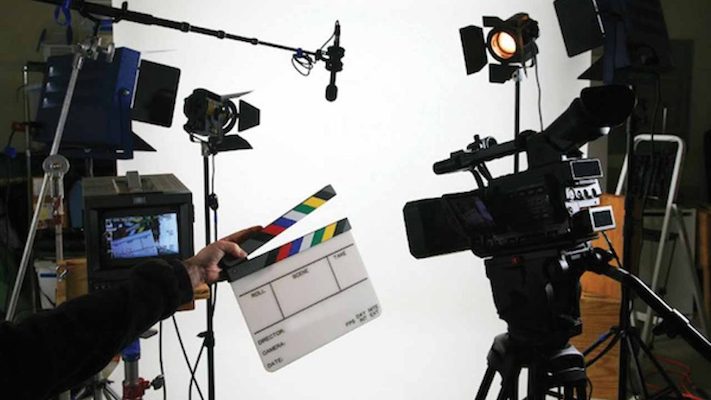Filmmakers frozen out of banks’ big cheques
Nigeria’s film industry, also known as Nollywood, is struggling to access billions of naira pledged by banks and development institutions despite being a big employer of labour and foreign exchange earner.
The industry, which generates millions of dollars annually and supports thousands of jobs, still battles chronic underfunding that limits production quality and global competitiveness.
However, at the 14th Africa International Film Festival (AFRIFF) this week in Lagos, filmmakers voiced their frustrations, claiming that these funds rarely reach independent creators. Panel discussions highlighted a gap between pledges and reality, raising questions about transparency and accessibility in creative financing.
Read also: Utica Capital unveils N20bn fund to tackle financing gaps in Nigeria’s film industry
Billions pledged
The African Export-Import Bank (Afreximbank) has been a major player. In October 2024, it committed $200 million specifically for Nigeria’s creative industries, including film, fashion, and music. This facility, secured by Hannatu Musawa, minister of Art, Culture, and Creative Economy, offers loans, grants, and technical assistance to entrepreneurs. It forms part of Afreximbank’s broader Creative Africa Nexus (CANEX) programme, which expanded to $2 billion in 2025 to foster intra-African trade in cultural products.
Earlier, in May 2025, Afreximbank had launched a $1 billion film fund to promote high-quality productions and global distribution of African TV series and movies. In July 2025, it entered an equity partnership with Nigerian artist D’Banj’s C.RE.A.M. platform, injecting capital into talent discovery and monetisation. These moves aim to unlock $15 billion from Nigeria’s creative sector by year-end, supporting over four million jobs.
Domestically, Providus Bank partnered with the federal government on a N5 billion ($3.2 million) Creative Fund launched in December 2023. The initiative targets Nollywood producers for movie projects. The first batch, disbursed in May 2024, allocated N1.5 billion to four actors and producers, including funding for scripts, production, and marketing as announced by Fegho Umunubo, special assistant to the President (Office of the Vice President) on Digital and Creative Economy.
The second batch followed in June 2024, with applications screened for viability. Providus described it as a tool to reduce reliance on foreign capital and build local content ecosystems. By September 2024, the government had vetted further applications, with plans to extend support into 2025.
Similarly, Access Bank introduced its Creative Sector Loan in early 2025, offering low-interest financing of about nine percent for filmmakers, musicians, and startups. Loans cover production costs, equipment, and distribution, with repayment terms of up to 10 years tailored to project cash flows.
Eligibility requires basic documentation such as Bank Verification Numbers (BVN) and project budgets. The bank positions it as a bridge for scaling Nollywood ideas, with applications processed via branches or apps. In August 2025, Access highlighted its role in fueling Afrobeats and film at the Création Africa Forum.
Also, Sterling Bank shifted to equity financing in 2024 through a partnership with Film Lab Africa, taking ownership stakes in films instead of loans. This covers production, marketing, and global outreach, sharing risks and profits.
The latest pledge came from Utica Capital in October 2025: a N20 billion ($12 million) closed-ended venture capital fund, Nigeria’s first SEC-licensed vehicle for Nollywood. With a 10-year horizon, it targets high-growth projects, aiming for a 2.5x return on investment. The first tranche is $5 million over five years, focusing on production and distribution gaps. Utica’s funds aim to bridge the $1 billion annual funding shortfall in the sector.
Read also: Filmhouse Group, AFFF partner to boost African film industry
Industry struggles to access the funds
Despite these announcements, filmmakers at AFRIFF’s panel entitled, ‘Rhythms of the Continent: Exploring How Afrobeats Impact African Cinema,’ painted a different picture.
David Oyelowo, British-Nigerian actor and filmmaker, a special guest at this year’s festival, shared his experience: “I have talked to banks in Nigeria who have come to me wanting to resource the film industry, but the minute you get to actual conversations, they disappear. We have everything we need with talent but we don’t have the resources.”
Blessing Uzzi, Nigerian director, urged financiers to ensure that players in the industry have access to their credit.
“We cannot keep announcing funds that nobody ever gets,” she said, noting that Nollywood births talents in the film industry yearly but with limited resources.
She urged creative leaders and big names in the industry to come together not just for conversations but to do the actual work by meeting these financiers who have promised funding and ensure their credit trickles down to lesser known talents.
The panel linked the gap between pledges and access to quality issues, with Oyelowo noting that opaque processes erode trust and deter private investment.
Why the disconnect?
Experts attribute the disconnect between pledges and actual access to bureaucratic hurdles, high collateral demands, and risk aversion, among lenders.
The cultural clash between creators and financiers is also based on mistrust and suspicion. According to Biodun Ariyo, group head at Providus Bank, “Financial houses are a business, not Red Cross.” He stressed that banks are willing to lend but only to structured businesses with scalable revenue models.
During a panel session of the 2025 African Creative Market in September, it was noted that many Nigerian creatives often lack formal business training or financial literacy.
This makes them struggle to present bankable proposals that reassure financiers.
For businesses, this mismatch signals risks as announced funds boost stock prices and PR, while unfulfilled pledges could scare off investors.
“As Nollywood eyes $15 billion in 2025 revenue, transparent tracking—perhaps via public dashboards—could align promises with progress. Without it, the sector’s potential remains untapped, limiting Nigeria’s creative exports,” an entertainment analyst said.

